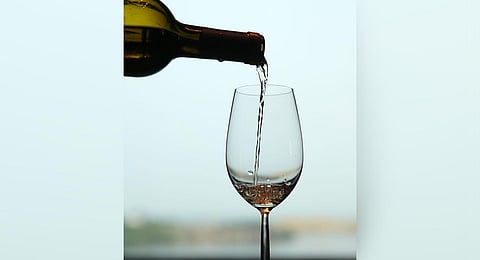

NEW DELHI: The Government of Delhi NCR headed by Chief Minister Arvind Kejriwal implemented a new excise policy in Delhi effective November 15, 2021. It withdrew from liquor business the four state government corporations namely DSIDC, DTTDC, DSCSC and DCCWS that earlier ran almost half of all the liquor vends in the city and were responsible for nearly 50% of liquor sales in Delhi. This literally pushed the state’s liquor trade into the hands of private players.
Among private players, the policy is said to be tilted in favour of wholesalers, giving them power to treat retailers differently. The new policy has given a handful of wholesalers offering brands of Pernod Ricard India Pvt Ltd and Diageo India a significant control over the supply to retail vends and the quantum of discount to offered. Pernod Ricard India Ltd and Diageo India account for over two-thirds of the India liquor brands sold in Delhi.
BJP leader Manjinder Singh Sirsa, in a complaint to the CBI, said that “the policy has been drafted and notified with the sole intent to facilitate creating of monopoly in the liquor market…” He said “the policy has been tailor-made” for a few wholesalers as one of the eligibility conditions to bid for a wholesaler’s license (L-1) was to have a minimum annual turnover of Rs 150 crore for three previous years. This eliminated small players from the bidding process.
Delhi’s deputy chief minister Manish Sisodia, who headed the group of ministers that finalized the new excise policy, did not respond to the question on the rationale behind keeping the turnover at Rs 150 crore, and whether this high entry limit helped bigger companies getting a monopolistic control of Delhi’s liquor trade.The new excise policy awarded a fixed profit margin of 12% for the wholesalers irrespective of the sales and actual profits of retailers. Industry sources said the high fixed profit protected the wholesalers’ interest but squeezed out the retailers who have started surrendering their licenses.
The new policy also gave out retailer’s licenses for which it divided the national capital into 32 zones with 27 shops in each zone. With an average reserve price of approximately Rs 225 crore per zone, the reserve price for these zones added up to nearly Rs 7,000 crore. Against this, the Delhi government earned about Rs 9,000 crore through competitive bidding.
But after operating the zones for a few months, as many as 10 out of a total of 32 zonal retailers have surrendered their licenses because of lower-than-expected revenues and unfair competition. The retailers who have surrendered their licenses largely blamed the discriminatory policy for the non-viability of their business. Sources said that big liquor manufacturers were offering discounts through wholesalers to select retailers while denying the same to others, thereby tilting the playing field in favour of a select few.
The earlier excise policy expressly denied manufacturers the permission to offer discretionary discounts, rebates and incentives to retailers. In the exceptional case of a manufacturer wanting to offer some gift packs to retailers, he had to treat all retailers equally. The new policy, however, removed this condition and gave a free hand to the manufacturers to offer discounts and incentives to the retailers.
This put retailers at the mercy of manufacturers and wholesalers who are picking their favourite retailing zones for offering concessions. Retailers who have surrendered their licenses say that the discounts being offered by some manufacturers and wholesalers to select retailers are so heavy that these retailers are able to offer buy-one-get-one-free schemes. This predatory pricing by retailers favoured by some manufacturers and wholesalers has killed other retailers who were left with no option but to surrender their license.
Sources said a large number of petitions have been filed, including one by the Delhi Liquor Traders’ Association which has close to 150 members, in the Delhi High Court.